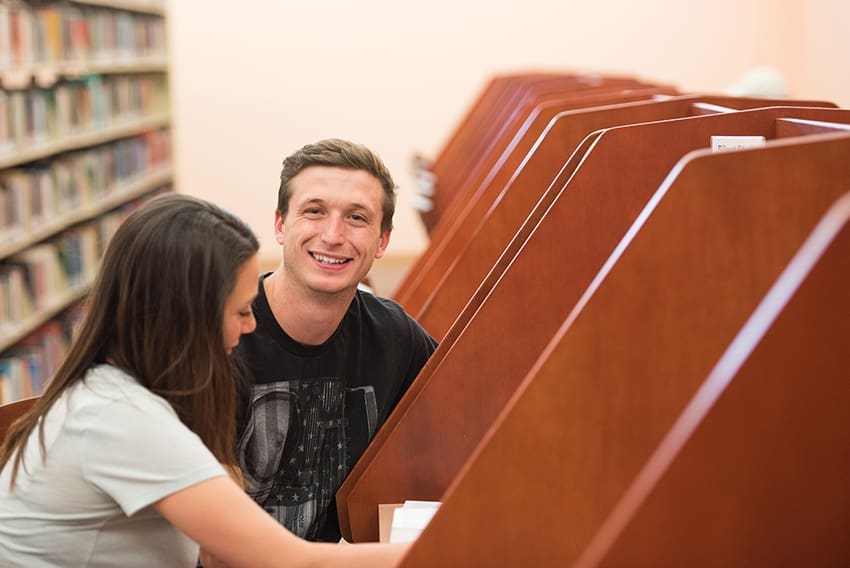
Get stories and expert advice on all things related to college and parenting.

Getting to know a new college is a big task.
In our focus on roommates and dorm furnishings, choosing classes, and ordering textbooks, we sometimes forget that our first-year students will also need to become familiar with an entirely new physical space. At home, they can find their way from point A to point B with their eyes closed, but now they must chart pathways from their residence hall to their meals to their classes and back again.
Those fundamental needs will get met first. But then comes more complex navigation: locating the campus resources that will help them be successful.
Support your student by encouraging them to discover and take advantage of their campus resources. They need to learn what those resources are and where they're located, and then they need actually to use them.
One of the first things you can do is ensure your student understands that asking for help isn't a sign of weakness or an admission of failure. Independence doesn't mean doing everything on your own. It means knowing what you need and advocating for those needs.
The wise student will use every tool available, but asking others for help isn't always easy. Assure your student that, although you will be there for emotional support, they should use the many resources available on campus to help them succeed.
The sooner your student gets to know their new campus, the sooner they can take advantage of the help that's provided. Here are six resources that are available at almost every college or university, large or small. Talk to your student about being the truly wise student who will make the most of each.
Professors teach classes, but they also set aside office hours to get to know students and to provide help. Unfortunately, few students take advantage of this one-on-one time with the professor. Some students find the prospect of talking to the professor intimidating, but it's worth overcoming the hesitation. Using office hours allows students to get to know the professor and get individual attention and targeted help with course material.
Wise student hint: Come to meetings with the professor with specific questions, bring any papers or tests, be prepared to listen and take notes — and be sure to thank the professor when you leave.
An academic advisor is the person assigned to help your student make important academic decisions such as choosing a major, selecting appropriate classes, staying on track for their degree, and navigating the college curriculum. An academic advisor can be an excellent partner in your student's academic career, but only if they take advantage of the advisor's guidance. Working with an advisor can ensure that your student makes informed choices and decisions.
Wise student hint: Even if your advisor is wonderful, don't rely solely on their information. Understand the curriculum and any Gen Ed/major/degree requirements and keep your own records to stay on track.
Most tutoring centers offer help in many subjects and provide both professional and peer tutoring services. Peer tutors have done well in the subjects that they tutor and can understand the struggles that students encounter. Writing centers offer students help with organizing and editing papers. Working with a tutor can help your student build confidence and study skills and can provide accountability to help them keep up with assignments.
Wise student hint: Start working with a tutor early in the semester before encountering real difficulty. This will help you establish a relationship with a tutor, build on early skills and be comfortable with the tutoring process well before midterm or final exam time.
Beyond the many online services, internet resources, and databases offered by the campus library, a visit to the physical building can uncover additional resources. Libraries provide quiet study spaces that suit students who are easily distracted or disturbed by the noise and commotion in their residence hall. Most also offer group study areas where students can work with others on projects or exam preparation. The expertise of the librarians can help guide students through essential research steps and help them to discover and access unfamiliar resources.
Wise student hint: Librarians love questions and are there to provide all of the help that you need. Bring your assignment with you, be specific about what you need to find, and don't pretend that you know more than you do. If you don't know how to use a library resource, ask.
Campus health centers are no longer the old-fashioned school infirmary. Most contemporary health centers offer onsite medical and counseling services and general wellness education. Increasingly, campus health centers offer expanded services to help students deal with stress, anxiety, and other mental health issues. Encourage your student to seek physical or psychological help if they need it.
Wise student hint: Locate the health center early before you need it. Ask about policies, how to make appointments, what services are available, and what the hours are. If you are sick and need help, you will already be familiar and comfortable with the process and staff.
The career center on most campuses is far more than a job placement office and should be on your student's list of places to visit in the first year. Most of today's career offices can help your student choose a major, explore careers within a chosen major, discover strengths and talents, find on- and off-campus jobs, and seek out internships. Career centers also offer help with resume building, interviewing skills, and workplace expectations. The career center can be an essential link between your student's academic work and their future career.
Wise student hint: Visit the career center early to learn what they offer. Return regularly to take advantage of services and build relationships with staff members. They will keep you in mind when they know of new opportunities.
Unfortunately, many terrific campus resources are underutilized. You may need to nudge your student to find and use the resources available at their school.
Help them be the wise student who knows how to ask for help and does it often. One college professor said, "Asking for help is the new smart!"